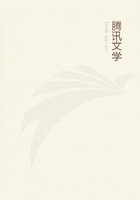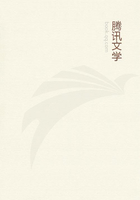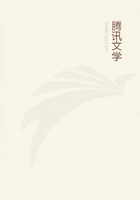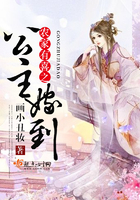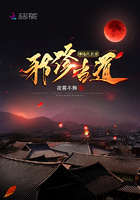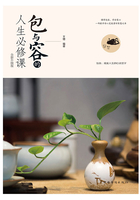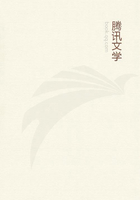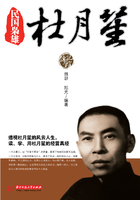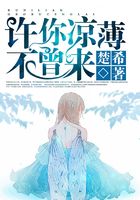In this manner he kept them tethered to his pillow, blotting out the memory of whole months of fretfulness and unkindness in one short hour when he chose to display for them the ever-new treasures of his pinchbeck tenderness and charm of manner--a system of paternity that yielded him an infinitely better return than his own father's indulgence had formerly gained. At length his bodily infirmities reached a point when the task of laying him in bed became as difficult as the navigation of a felucca in the perils of an intricate channel. Then came the day of his death; and this brilliant sceptic, whose mental faculties alone had survived the most dreadful of all destructions, found himself between his two special antipathies--the doctor and the confessor. But he was jovial with them. Did he not see a light gleaming in the future beyond the veil? The pall that is like lead for other men was thin and translucent for him; the light-footed, irresistible delights of youth danced beyond it like shadows.
It was on a beautiful summer evening that Don Juan felt the near approach of death. The sky of Spain was serene and cloudless; the air was full of the scent of orange-blossom; the stars shed clear, pure gleams of light; nature without seemed to give the dying man assurance of resurrection; a dutiful and obedient son sat there watching him with loving and respectful eyes. Towards eleven o'clock he desired to be left alone with this single-hearted being.
"Felipe," said the father, in tones so soft and affectionate that the young man trembled, and tears of gladness came to his eyes; never had that stern father spoken his name in such a tone.
"Listen, my son," the dying man went on. "I am a great sinner.
All my life long, however, I have thought of my death. I was once the friend of the great Pope Julius II.; and that illustrious Pontiff, fearing lest the excessive excitability of my senses should entangle me in mortal sin between the moment of my death and the time of my anointing with the holy oil, gave me a flask that contains a little of the holy water that once issued from the rock in the wilderness. I have kept the secret of this squandering of a treasure belonging to Holy Church, but I am permitted to reveal the mystery in articulo mortis to my son. You will find the flask in a drawer in that Gothic table that always stands by the head of the bed. . . . The precious little crystal flask may be of use yet again for you, dearest Felipe. Will you swear to me, by your salvation, to carry out my instructions faithfully?"
Felipe looked at his father, and Don Juan was too deeply learned in the lore of the human countenance not to die in peace with that look as his warrant, as his own father had died in despair at meeting the expression in his son's eyes.
"You deserved to have a better father," Don Juan went on. "I dare to confess, my child, that while the reverend Abbot of San-Lucar was administering the Viaticum I was thinking of the incompatibility of the co-existence of two powers so infinite as God and the Devil----"
"Oh, father!"
"And I said to myself, when Satan makes his peace he ought surely to stipulate for the pardon of his followers, or he will be the veriest scoundrel. The thought haunted me; so I shall go to hell, my son, unless you carry out my wishes."
"Oh, quick; tell me quickly, father."
"As soon as I have closed my eyes," Don Juan went on, "and that may be in a few minutes, you must take my body before it grows cold and lay it on a table in this room. Then put out the lamp; the light of the stars should be sufficient. Take off my clothes, reciting Aves and Paters the while, raising your soul to God in prayer, and carefully anoint my lips and eyes with this holy water; begin with the face, and proceed successively to my limbs and the rest of my body; my dear son, the power of God is so great that you must be astonished at nothing."
Don Juan felt death so near, that he added in a terrible voice, "Be careful not to drop the flask."
Then he breathed his last gently in the arms of his son, and his son's tears fell fast over his sardonic, haggard features.
It was almost midnight when Don Felipe Belvidero laid his father's body upon the table. He kissed the sinister brow and the gray hair; then he put out the lamp.
By the soft moonlight that lit strange gleams across the country without, Felipe could dimly see his father's body, a vague white thing among the shadows. The dutiful son moistened a linen cloth with the liquid, and, absorbed in prayer, he anointed the revered face. A deep silence reigned. Felipe heard faint, indescribable rustlings; it was the breeze in the tree-tops, he thought. But when he had moistened the right arm, he felt himself caught by the throat, a young strong hand held him in a tight grip--it was his father's hand! He shrieked aloud; the flask dropped from his hand and broke in pieces. The liquid evaporated; the whole household hurried into the room, holding torches aloft. That shriek had startled them, and filled them with as much terror as if the Trumpet of the Angel sounding on the Last Day had rung through earth and sky. The room was full of people, and a horror-stricken crowd beheld the fainting Felipe upheld by the strong arm of his father, who clutched him by the throat. They saw another thing, an unearthly spectacle--Don Juan's face grown young and beautiful as Antinous, with its dark hair and brilliant eyes and red lips, a head that made horrible efforts, but could not move the dead, wasted body.
An old servitor cried, "A miracle! a miracle!" and all the Spaniards echoed, "A miracle! a miracle!"

